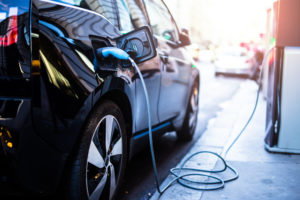Are Electric Cars Safer?

Electric cars and “hybrid” vehicles that use both gasoline and electric power have become a popular choice for environmental and efficiency reasons in the past decade. However, there may be yet another reason to consider electric cars: they may be safer vehicles on the road.
Recent studies of accidents involving electric and hybrid vehicles suggest that these vehicles might be safer than ordinary, gas-powered cars of a similar size. Researchers indicate that there are several reasons an electric or hybrid car might be a safer choice.
Vehicle Weight
Electric and hybrid vehicles weigh, on average, about ten percent more than conventionally-powered vehicles of a similar size. This additional weight helps them stay more stable during accidents, which in turn helps protect the people inside the vehicle. However, the additional mass may have a great impact on others involved in the accident who are outside the vehicle: more weight means more momentum, which lends more energy—and more damage potential—to a crash.
Driver Behavior
Hybrid and electric vehicles use an electric motor to handle some or all of the vehicle’s functions at low speeds. In hybrids, for instance, the electric motor takes over when the vehicle comes to a stop or accelerates from a stop.
This design means that to maximize fuel efficiency, the vehicle should stay in its “electric” mode as long as possible before the gas engine kicks in—which only happens when the vehicle exceeds a certain speed. As a result, hybrid vehicles tend to reward slower, more conservative driving. Since the drivers who buy these vehicles are already interested in the reward of greater fuel economy, they are likely to drive more carefully, helping to reduce accident risks.
If you’ve been injured in a car accident, don’t hesitate to reach out to an experienced New Jersey personal injury lawyer who can help you understand your legal options and choose the path to pursuing compensation that works best for your situation. Contact Lombardi and Lombardi, P.A. today.






 CALL NOW
CALL NOW